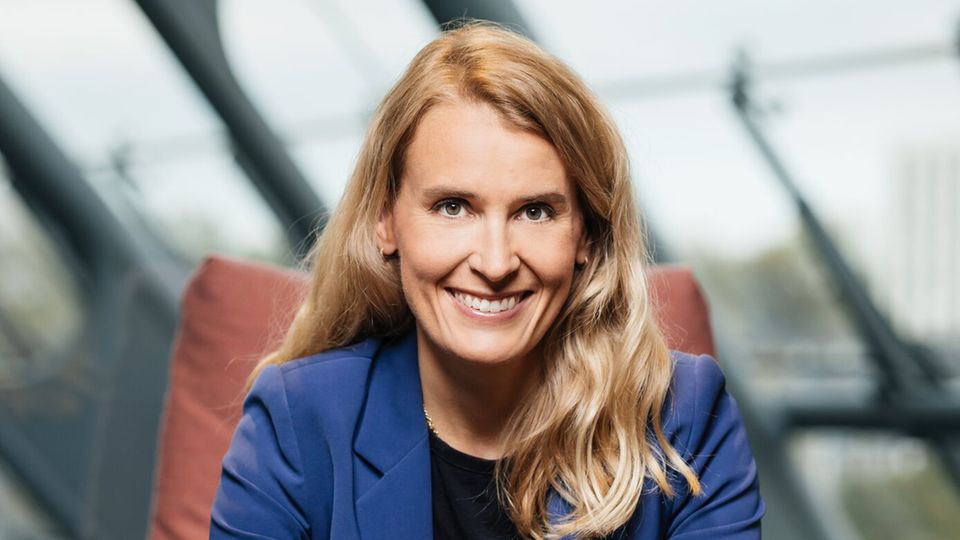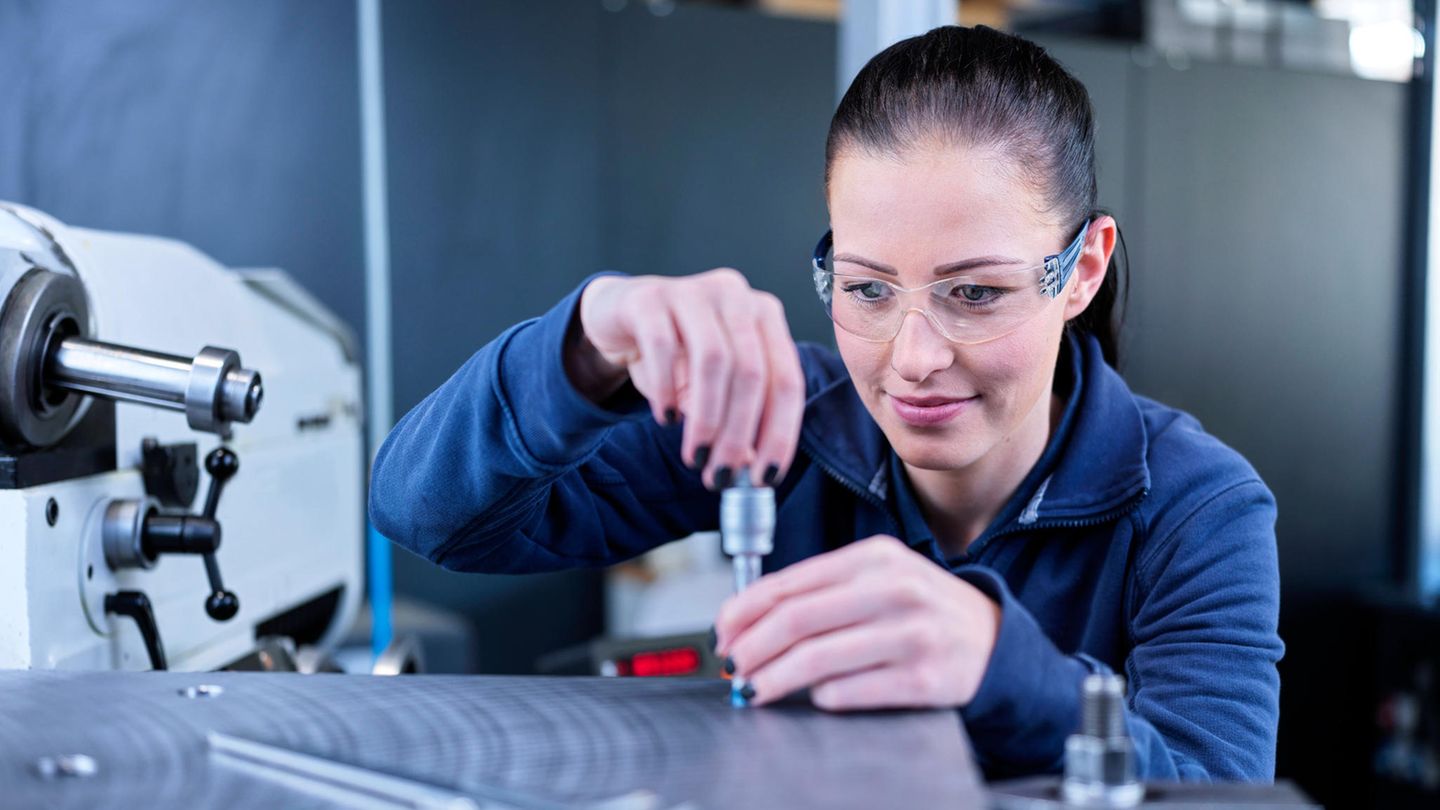interview
Germany is lacking skilled workers, especially in technical professions. Here Gabriele Fanta, the head of human resources at the technology group Körber, explains how she is still finding them.

This is original content from the Capital brand. This article will be available for ten days on stern.de. After that, you will find it exclusively on capital.de. Capital, like the star to RTL Germany.
Ms. Fanta, Körber is involved in digitalization, mechanical engineering and software solutions, among other things – areas in which skilled workers are desperately needed. How many positions do you currently have open?
At the moment there are several hundred worldwide and we are actually missing people with a STEM background, i.e. from the fields of science and technology. This number is not yet a record, but we will get there when the baby boomers retire in three to five years.
How do you prepare for this?
There’s a pretty big wave coming our way. We’ll need people who already have professional experience, not just those who come straight from university. In addition to training and continuing education, we’re also looking at how we can create incentives for experienced employees to stay with the company longer.

© Enver Hirsch
To person
Gabriele Fanta has been Head of Human Resources at the Hamburg-based technology group Körber, which has over 12,000 employees at 100 locations worldwide, since 2020. Körber machines and software solutions are used to produce medication packaging and deliver packages. Fanta previously worked as Head of Human Resources in Germany at McDonald’s, among others.
How great do you estimate the need for skilled workers in your country for the coming years?
Given our current company size of more than 12,000 employees, I expect that we will have an additional 800 to 1,000 vacancies each year.
And how do you plan to meet this need?
We rely on a mixture of active search, for example via Linkedin, and employee-driven formats. During the Corona period, we launched a very successful event format that enabled us to increase our number of applicants by 40 percent. But fundamentally, our own training and further education is the most important talent pipeline for us, regardless of whether it is commercial or technical. The most proven career path with a guarantee of success continues to be traditional training or a dual study program. The good thing about both is that the trainees get to know the company well and can then gain further qualifications.
Your company operates worldwide. Is it easier to find staff in other countries than in Germany?
It depends. In economies like Germany that have not had a baby boomer generation since then, there is also a smaller supply of skilled workers and labor, for example in France. In Asia, on the other hand, it is much easier because many people there are looking for further career options for the first time after finishing school or university.
If in a few years there will be a shortage of experienced staff, how important is the retraining of existing specialists from other areas?
This is definitely an important measure. In the future, traditional mechanical and plant engineering will merge even more with software and data solutions. This actually requires all professions to remain open to learning options. However, skilled workers must be willing to retrain. It will not be successful to force someone into a job profile that does not suit them. On the other hand, we must manage to promote a greater attractiveness of the location in order to increase the willingness to move.
Do we perhaps simply need more women in STEM professions to meet the growing demand for personnel there?
Yes, I think the issue of women working is very important. As a technology company, we currently only have around 20 percent of women. In order to increase this, we as a society as a whole need to address two issues in particular: How will we regulate care work? And what can companies offer women who want to work? I am thinking of more flexible part-time or job-sharing models. Basically, there needs to be a greater focus on technical job profiles for female talent.
What do you mean exactly?
The entire way children are shaped from kindergarten to high school graduation must change. Scientific profiles are hardly ever seen as desirable, especially for women. Society is still surprised when a woman works as a technician or engineer. We need to be more flexible and appreciative in our thinking. Talent development for STEM subjects cannot start early enough and should actually begin in kindergarten in order to sustainably change social views and attitudes.
What needs to happen to get more young women and young people in general interested in STEM subjects?
I think we need to show children and young people above all that they can have a lot of fun, for example with experiments. The perspectives also need to be clearer, for example: what career can I choose if I am good at chemistry, maths or physics? For example, we offer internships or orientation days for school classes. In my opinion, this element of inspiration is often neglected in everyday school life.
Would you say that it is worthwhile for young people to complete an apprenticeship or study in the STEM field right now?
If you look at Germany as a location, which grew through industrialization and technology and is now losing a lot of talent due to demographics, then MINT profiles will be in particularly high demand. That’s why it’s definitely worth it.
Source: Stern




